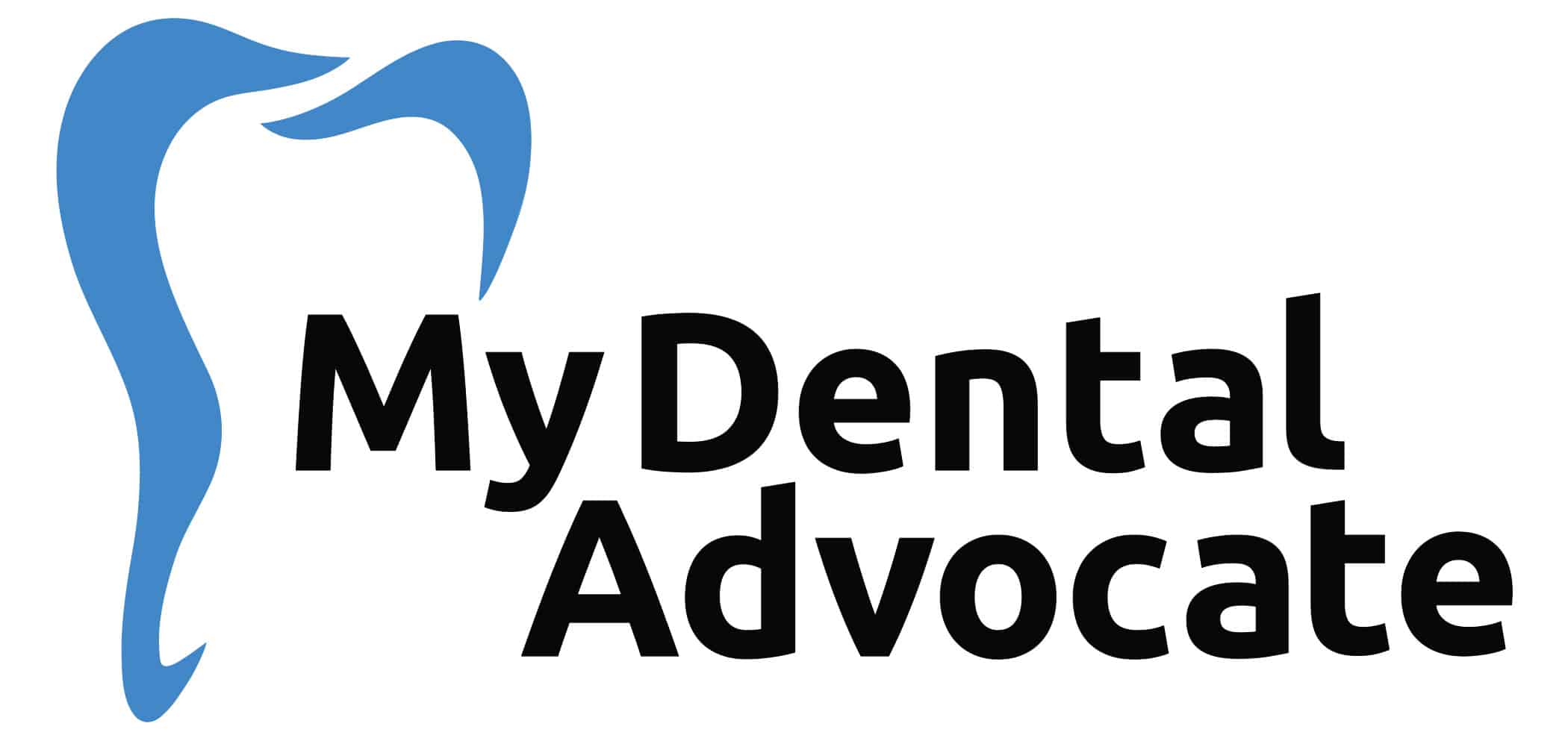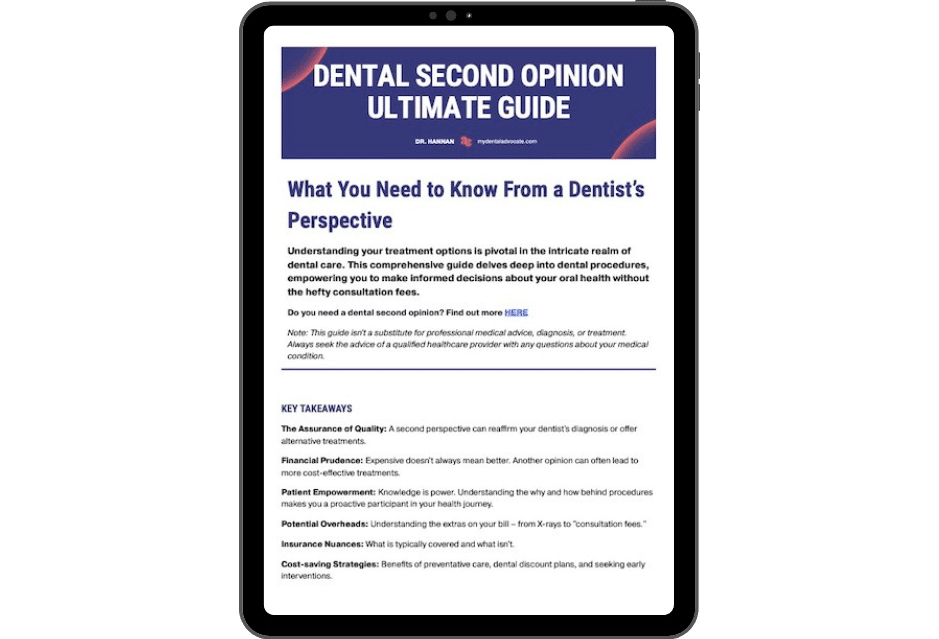Best Magic Mouthwash Recipe (Expert Advice)
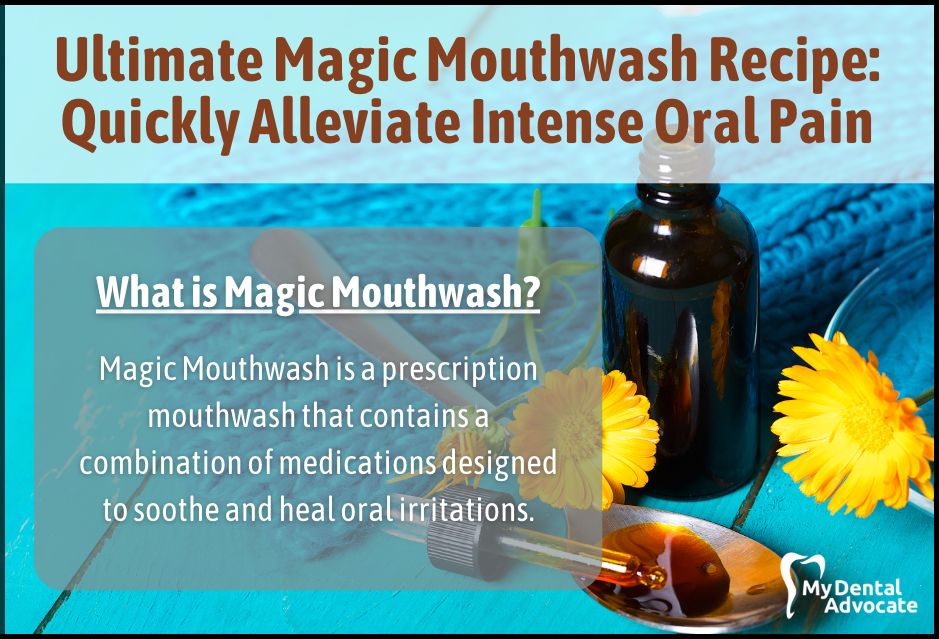
Experiencing mouth sores, ulcers, or other oral irritations can be painful and distressing.
It can impact your daily life and challenge even simple tasks like eating, drinking, or speaking.
Thankfully, there’s a powerful prescription solution available: Magic Mouthwash.
So if you’re grappling with persistent oral irritations, consider speaking to your healthcare provider about Magic Mouthwash – it could be the key to reclaiming your comfort and well-being.
Need Dental Advice? Ask Dr. Hannan!
What Is Magic Mouthwash Recipe?
Magic Mouthwash is a prescription mouthwash that contains a combination of medications designed to soothe and heal oral irritations.
The recipe for Magic Mouthwash can vary depending on the severity of the condition and the patient’s specific needs. Still, it typically contains a mixture of an antihistamine, a local anesthetic, and an antifungal or antibiotic medication.
If you’re experiencing mouth sores or blisters due to cancer treatments or an infection, your healthcare provider may recommend a magic mouthwash recipe to help alleviate your symptoms.
Recommended Reading: Top 5 Best Mouth Sore Products Review 2024This medicated mix comes in liquid form and can be made at home or prescribed by a doctor.
Common Ingredients
The ingredients in a magic mouthwash recipe can vary depending on the individual’s needs and the healthcare provider’s recommendations.
Key Ingredients
- Lidocaine or viscous lidocaine: A local anesthetic that can help numb the mouth and throat.
- Diphenhydramine: An antihistamine that can help reduce inflammation and relieve pain.
- Maalox or aluminum/magnesium hydroxide: An antacid that can help neutralize stomach acid and coat the mouth and throat.
- Hydrocortisone or another corticosteroid: These medications reduce inflammation and swelling, relieving irritated oral tissues.
- Antibiotics (e.g., tetracycline or erythromycin): These are used to treat or prevent bacterial infections within the oral cavity.
- Nystatin: An antifungal medication that can help treat oral thrush.
Additional Ingredients
- Sucralfate: Can help coat and protect the mouth and throat.
- Baking soda: Can help neutralize acid and promote healing.
- Chlorhexidine: An antiseptic that can help prevent infection.
- Benzydamine hydrochloride: An anti-inflammatory medication that can help relieve pain.
Prescription vs. Homemade
While creating a magic mouthwash at home using over-the-counter ingredients is technically possible, it is not generally recommended.
Attempting to make magic mouthwash at home without the guidance of a healthcare professional can be risky, as improper mixing, dosages, or ingredient choices may lead to unintended consequences or be less effective in treating your oral condition.
Healthcare providers, such as dentists or physicians, have the knowledge and experience to prescribe a magic mouthwash recipe tailored to your specific needs, ensuring that the ingredients are appropriate, well-balanced, and safe for you to use.
They can also guide proper dosage and application methods, which are crucial for the treatment’s effectiveness.
It’s always best to consult a healthcare professional before attempting any at-home remedies for oral health issues. They can help you determine if magic mouthwash is the right solution for your condition and guide you safely and effectively.
Recommended Reading: Top 4 Best Pain Relief Oral Rinse Review 2024Directions
- Rinse your mouth with water and spit it out.
- Pour the prescribed dose of magic mouthwash into a sterile spoon or measuring cup.
- Place the mouthwash in your mouth and swish it for 1 to 2 minutes, making sure to coat your entire mouth and throat.
- Spit the mouthwash out and avoid eating or drinking for at least 30 minutes to allow the medication to take effect.
Following your healthcare provider’s instructions carefully when using magic mouthwash is essential. If you experience any side effects or have concerns about the medication, speak with your healthcare provider immediately.
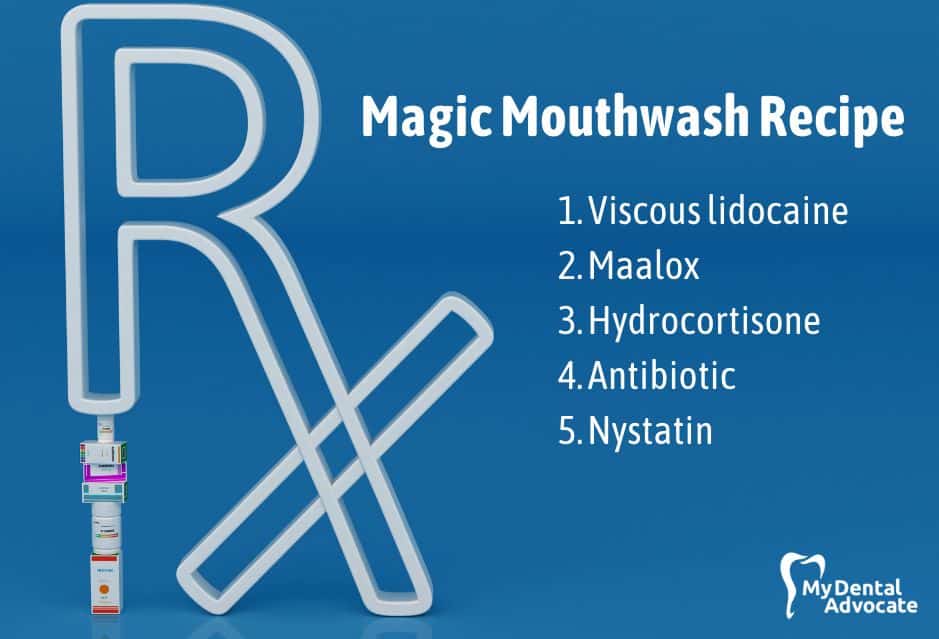
Why Is Magic Mouthwash Prescribed?
If you are experiencing painful mouth sores, your dentist may prescribe magic mouthwash to help alleviate your symptoms.
Magic mouthwash is a medicated mouth rinse that can relieve various conditions, including those caused by cancer treatments and infections.
What is in Magic Mouthwash?
There are several different formulations of magic mouthwash, each with its unique combination of ingredients.
Some popular brands include Duke’s Magic Mouthwash and Mary’s Magic Mouthwash.
Drug Classifications
- Antibiotics: These medications can help kill bacteria in the mouth and prevent infection.
- Antifungal medicines: If you have a fungal infection, such as oral thrush, antifungal medication can help clear it up.
- Pain relievers: Medications like lidocaine can help numb the mouth and relieve pain.
- Steroids: These medications can help reduce inflammation in the mouth.
- Antacids: Antacids can help coat the mouth and ease burning or irritation.
If you are prescribed magic mouthwash, your doctor will provide specific instructions on how to use it. In general, you will swish the mouthwash in your mouth for a certain amount of time before spitting it out.
Some formulations may require a syringe to apply the mouthwash directly to the affected areas.
Overall, magic mouthwash can be an effective way to alleviate painful mouth sores and other symptoms. Talk to your doctor to see if it might be a good option.
Common Symptoms
- Mouth sores: Painful sores in the mouth can make it difficult to eat or speak.
- Burning or tingling: Some people may experience a burning sensation in the mouth or throat.
- Dryness: Dry mouth can be uncomfortable and make it difficult to swallow.
- Soreness: The mouth and throat may feel sore and tender.
- Numbness: Some people may experience numbness or tingling in the mouth or tongue.
- Stomatitis: This is a condition where the lining of the mouth becomes inflamed, causing pain and discomfort.
- Oral thrush: This is a fungal infection that can cause white patches in the mouth.
- Herpes virus: Cold sores or fever blisters caused by the herpes virus can be painful and uncomfortable.
Magic mouthwash can benefit people undergoing cancer treatments, such as chemotherapy and radiation. These treatments can cause side effects, including mouth sores, nausea, and diarrhea.
Magic mouthwash can help alleviate some of these symptoms and improve your overall quality of life during treatment.
Recommended Reading: Magic Mouthwash for Thrush? (Expert Guidance)Benefits of Magic Mouthwash
Magic mouthwash offers numerous benefits for individuals experiencing oral discomfort due to various conditions.
Key Benefits
- Pain Relief: Quickly numbs mouth sores and ulcers.
- Reduced Inflammation: Contains anti-inflammatory ingredients.
- Customization: Can be tailored for specific symptoms.
- Ease of Use: Simple swish-and-spit application.
- Rapid Onset: Soothing effects begin within minutes.
Overall, magic mouthwash can be an effective treatment for various oral problems. However, if you are experiencing mouth sores, ulcers, or other oral issues, talk to your doctor about whether magic mouthwash might be right for you.
Common Treatments
Magic mouthwash is typically used to treat conditions that cause oral mucositis, a painful inflammation of the mucous membranes in the mouth. Other common treatments include:
Infections
If you have an infection in your mouth, your doctor may recommend using magic mouthwash to help alleviate symptoms.
Magic mouth rinses can help reduce inflammation and pain caused by infections such as thrush, a fungal infection that can occur in the mouth. In addition, combining medications in magic mouthwash can help kill bacteria and fungi in the mouth, reducing the risk of disease.
Cancer Treatments
If you are undergoing cancer treatment such as chemotherapy or radiation therapy, you may experience oral mucositis as a side effect.
Magic mouth rinses can help alleviate the pain and inflammation caused by this condition. It can also help reduce the risk of infection in the mouth, which is essential for cancer patients with weakened immune systems.
Radiation Treatments
If you are undergoing radiation therapy for cancer, you may experience dry mouth, which can be uncomfortable and increase the risk of infection.
Magic mouthwash can help alleviate the symptoms of dry mouth by moisturizing the mouth and reducing inflammation. It can also help reduce the risk of infection in the mouth, which is vital for patients undergoing radiation therapy.
Possible Side Effects & Precautions
While magic mouthwash can be a helpful solution for various oral issues, it can also cause some side effects. Here are some possible side effects and precautions to keep in mind:
Side Effects
- Changes in taste sensations
- Dryness
- Irritation
- Nausea
- Pain
- Soreness
- Burning or stinging
- Tingling
If you experience any of these side effects, it’s essential to stop using the mouthwash and consult with your healthcare provider.
Precautions
- Do not swallow the mouthwash.
- Wait at least 30 minutes after using the mouthwash before eating or drinking.
- Only use the mouthwash for up to seven days by consulting with your healthcare provider.
- If you have a history of allergies or sensitivities to certain medications or ingredients, consult your healthcare provider before using the mouthwash.
- If you are pregnant or breastfeeding, consult your healthcare provider before using the mouthwash.
Following these precautions is important to avoid any potential harm or adverse effects from using magic mouthwash. Don’t hesitate to ask your healthcare provider any questions or concerns.
Alternative Remedies for Oral Pain and Discomfort
If you’re experiencing oral pain and discomfort, there are several alternative remedies that you can try before turning to magic mouthwash. Here are a few options to consider:
Saltwater Rinse
A saltwater rinse is a simple and effective alternative to magic mouthwash. All you need is warm water and salt. Mix a teaspoon of salt into a cup of warm water and swish it in your mouth for 30 seconds before spitting it out. Repeat this process a few times a day to help reduce pain and inflammation.
Baking Soda Rinse
Baking soda is another common household item that can be used to soothe oral pain. Mix a teaspoon of baking soda into a cup of warm water and swish it in your mouth for 30 seconds before spitting it out. This can help neutralize acids in your mouth and reduce inflammation.
Ice Packs
If you’re experiencing swelling and inflammation, applying an ice pack to the affected area can help reduce pain and discomfort. Wrap a bag of ice in a towel and hold it against your cheek for 10-15 minutes. Repeat this process several times a day as needed.
Herbal Remedies
Certain herbs, such as chamomile and peppermint, have natural anti-inflammatory properties that can help reduce oral pain and discomfort. You can make tea using these herbs and swish it in your mouth for a few minutes before spitting it out. Alternatively, you can use a mouthwash that contains these herbs.
Over-the-Counter Pain Relievers
If your oral pain is particularly severe, you may need to take an over-the-counter pain reliever, such as ibuprofen or acetaminophen. Follow the recommended dosage instructions on the packaging and speak to your doctor if you have any concerns.
Remember, you must speak to your dentist or doctor if oral pain persists or worsens. They can help determine the cause of your pain and recommend the best treatment for your specific needs.
When to Consult a Dental Professional
While magic mouthwash can effectively treat various oral conditions, knowing when to consult a dental professional is essential.
Recommendations
- Severe Pain: If pain persists, consult a dentist for additional treatment.
- Persistent Symptoms: Seek professional advice if symptoms don’t improve after several days.
- Allergic Reactions: Be aware of potential allergic reactions to ingredients.
- Underlying Conditions: Consult a dentist before use if you have conditions like diabetes or autoimmune disorders.
Remember, magic mouthwash is not a substitute for professional dental care. If you’re experiencing oral health issues, it’s always best to consult a dental professional for advice and treatment.
My Experience & Expertise
As a dentist, I’ve treated numerous patients with oral mucositis, a condition causing painful mouth sores.
Magic mouthwash is a highly effective treatment for this issue.
I have prescribed magic mouthwash to various patients, witnessing its ability to alleviate pain and discomfort. Researching its ingredients, benefits, and potential side effects allows me to recommend the optimal recipe for each individual.
Need a second opinion? We can help! Learn more. Knowledge is power when cultivating healthy dental habits. The more informed you are, the better positioned you’ll be to prevent avoidable and potentially costly dental procedures for you and your family. Watch for future blog posts, where we’ll continue sharing important information, product reviews and practical advice!

About the Author
Dr. Matthew Hannan, also known as “Dr. Advocate,” is a board-certified dentist on a mission to provide accurate dental patient education. He attended Baylor University before completing dental school at UT Health San Antonio School of Dentistry. He now lives in Arizona with his beautiful wife and 4 kids. Dr. Hannan believes everyone should access easy-to-read dental resources with relevant, up-to-date dental research and insight to improve their oral health.

Connect with Dr. Hannan!
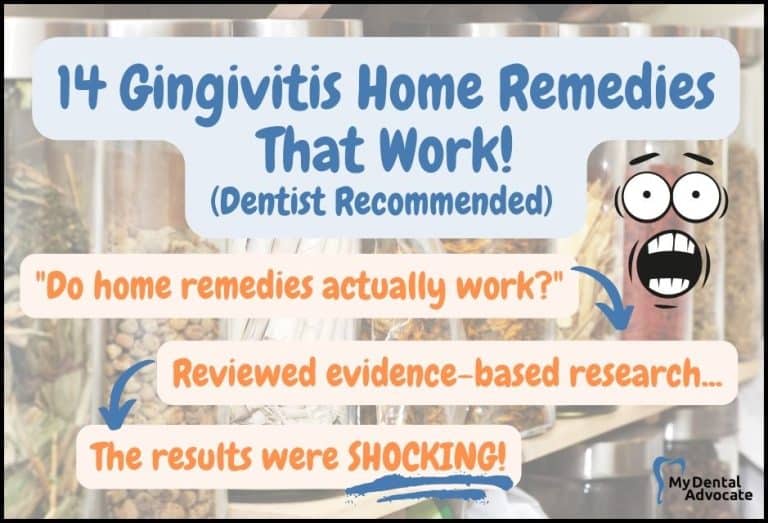
14 Gingivitis Home Remedies That Work! (Dentist Recommended)
Gingivitis requires professional treatment by a dentist or dental hygienist to remove harmful bacteria below the gums. However, there are promising home remedies that will alleviate signs and symptoms of gingivitis…
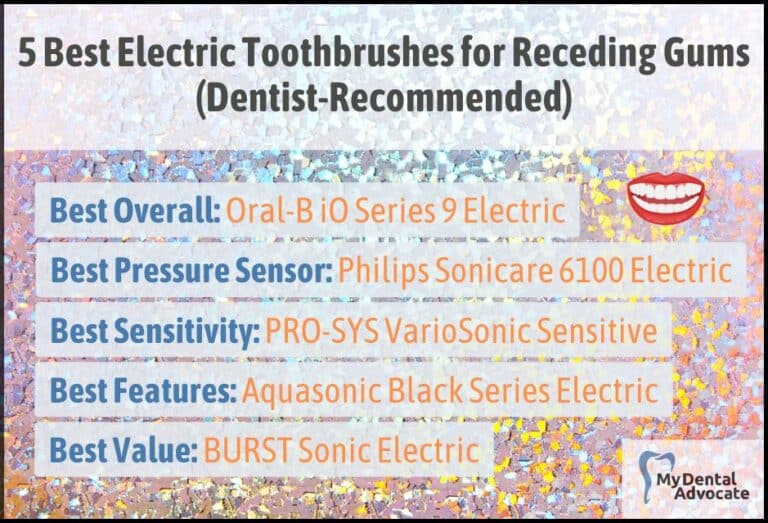
Best Electric Toothbrush for Receding Gums (My Thoughts)
If you have receding gums, you know how important it is to care for them. The right electric toothbrush can help prevent further damage and promote gum health. This article will introduce you to the best electric toothbrushes for receding gums.
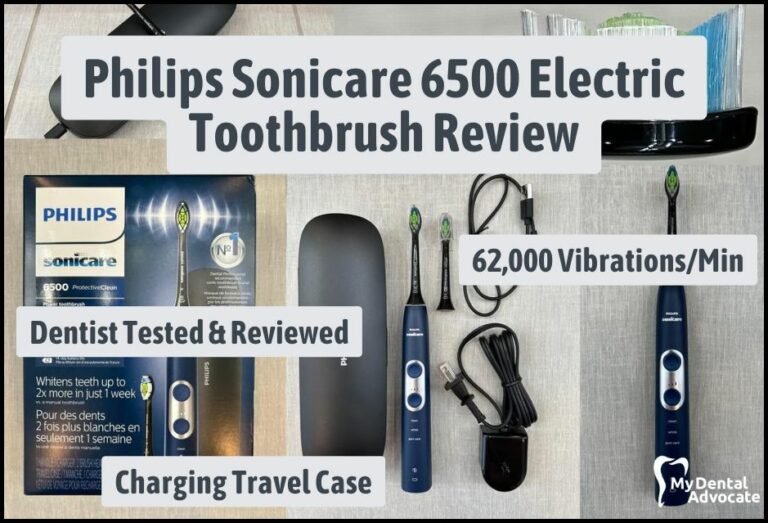
Philips Sonicare 6500 Electric Toothbrush Review 2024
In the realm of dental care, the Philips Sonicare 6500 Electric Toothbrush emerges as a revolutionary player. This cutting-edge device transcends standard cleaning, delivering a superior brushing experience that rewards you with a rejuvenated and sparkling smile.
Gain Clarity with Our FREE Second Opinion Guide
Receive clear, expert second opinions online within 48 hours. Start today!
Product Reviews
Our 250+ dental product reviews (and counting), curated by an experienced dentist, are the most comprehensive online.
Toothbrush Genie
State-of-the-art chatbot designed to help you discover your perfect toothbrush in just a few simple steps!
Cavity Risk Assessment
Cutting-edge digital tool designed to evaluate your individual cavity risk based on your responses to a series of questions.
Gum Disease Assessment
Discover your gum disease risk with our quick and engaging 6-question assessment!
